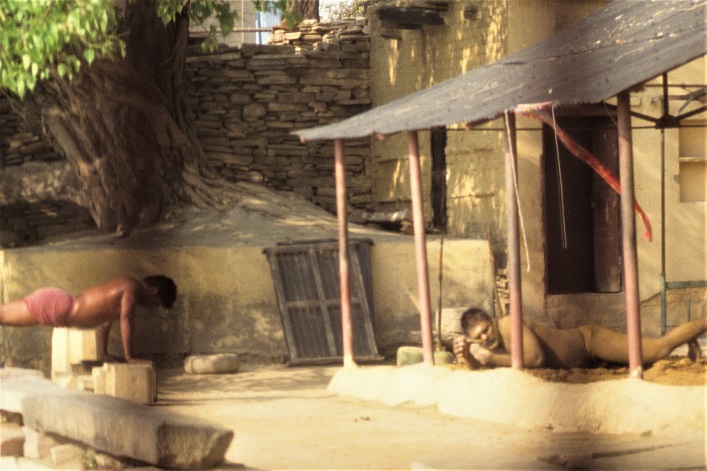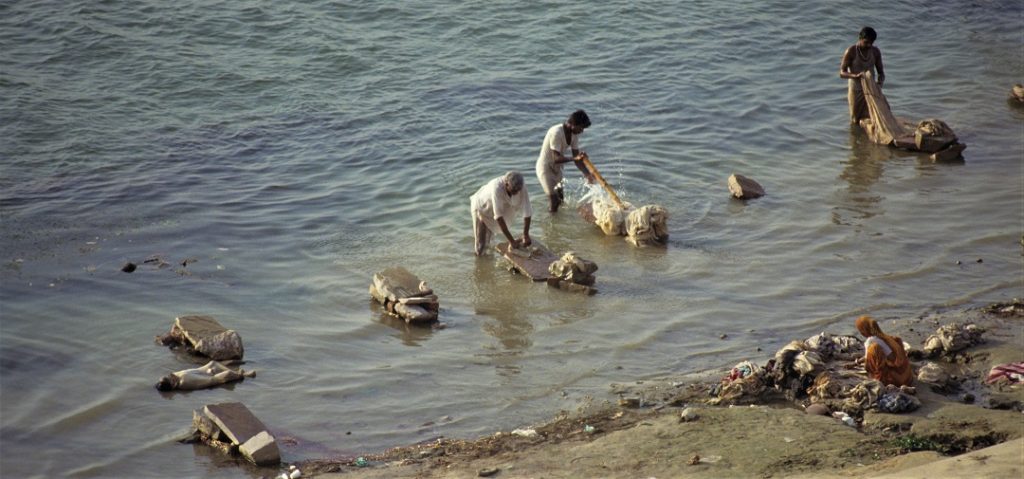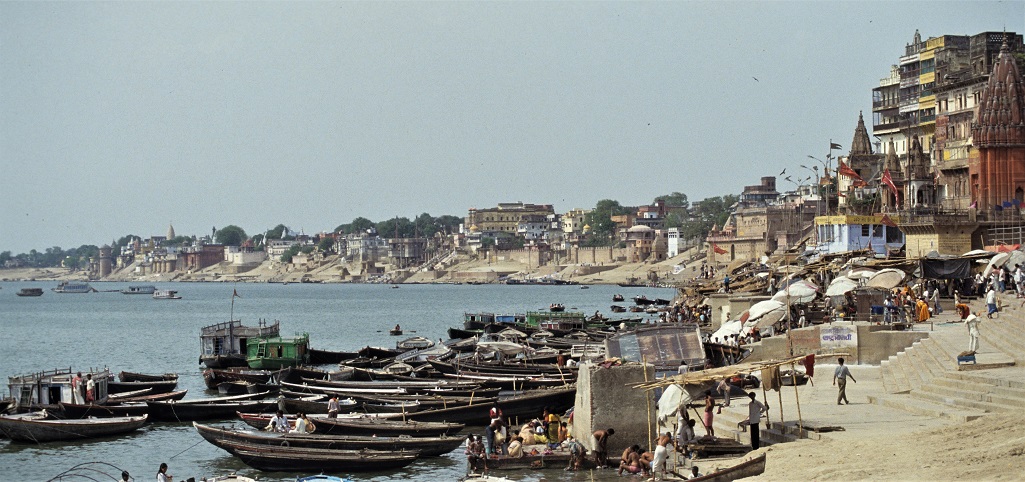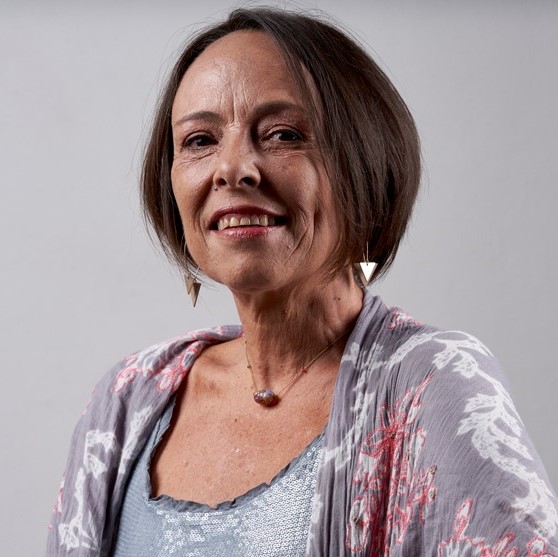The Cycles of Life
Daily chores and ancient rituals by the side of the Ganges


Benares (now Varanasi), 1992
The first time Afrika and I went to Varanasi I chose a room north of Assi Ghat. It took three days to find it, trudging around under the hot sun because I refused to stay in a touristy guest house. Nothing new, it was my modus operandi: get a temporary room until I found the perfect one, especially when I wanted to settle down for a couple of weeks. Since real estate searches provided an opportunity to become acquainted with the surroundings, by the time I found it I already knew a few shortcuts, local beggars and shopkeepers, and felt at home.
This room was near about perfect: part of an old fortress-like building jutting onto the shore of the river, rented to me by the owner who lived down below. It had been built over a turret of sorts, at the end of a walkway which seemed to be part of an old sentry wall. Large, basic but comfortable, it was graced by many windows which not only created a much needed airflow, but opened onto the river and a perfect crescent-moon view of the city ending with the red-hot fires of the cremations grounds.
To reach it I could walk over the shore, or amble through a succession of narrow lanes filled with decorative and historical details. Being a Roman, I was particularly attracted by the remains of the city’s lower layers, incorporated into the latest one which had been built of top. Windows half buried under the street, concrete walls patch-worked with those of some older structure, doors leading to lower grounds, that sort of thing. The idea that the city had been a famous spiritual center since the time of Buddha mesmerized me, and I continuously felt privileged to be there.
The only trouble were the many dogs prowling the alleys: mangy, covered in scabs, and usually aggressive. Walking with Afrika was a fearful challenge, and I often left her in the room.
 An added perk was an adjacent gym/wrestling ring, which I could see through one of my windows. It consisted of a shaded sand ring, a small temple at the feet of a beautiful bodh tree, and an open exercise area looking onto the river.
An added perk was an adjacent gym/wrestling ring, which I could see through one of my windows. It consisted of a shaded sand ring, a small temple at the feet of a beautiful bodh tree, and an open exercise area looking onto the river.
It was frequented by muscly men whose only covering was a cloth wrapped around their genital area, who spent the first ten minutes or so oiling their bodies with the help of a spatula. Afterwards they did a great number of pushups and squats, followed by exercises using progressively heavier maces which looked like the one held by the monkey god Hanuman. They flattened the sand ring using a wooden log pulled by one man and made heavier by another standing on it, and only afterward had a fight.
I loved watching the wrestlers, who came every day without fail. Fights were fierce and dirty, the sand getting onto their faces and eyes. The idea was to down the opponent with bare hands, and repeat. No fists, no kicks. Every man watched the fights, exploding in cheers every time someone hit the ground. There was a teacher, older and not so fit, who walked around with a stick and often shouted what sounded like either encouragements or abuse.
I was impressed by their commitment, especially considering the heat. It was early May, and it was so intense that my mattress was still hot at midnight. I remember walking towards the room thinking to be inside a furnace, then hearing the sound of a tenuous wind. I expected some relief, but the wind was so hot it scorched parts of my exposed skin—one side of the arms and legs, my face—as if I had been standing in front of a burning-hot oven.
Below my room was a line of dhobi wallahs, who washed clothes in the river all day long.
They banged the soapy cloths over some evenly distanced flat stones above the water, then hanged them on the many ropes lining the shore.
One morning, while drinking some Nescafe’ I had made in my room, I noticed a strange form near one of the stones. It looked like a body wrapped in some kind of cloth, but, could it really be? Right there a few feet away from the dhobi men? Intrigued, I picked my camera and walked towards it.
I was scared, not knowing what I would find. I walked slowly, using my zoom to have a better view. Taking a picture, then mustering more courage to walk a bit further. When I finally reached the spot, I realized it was the body of a man fully wrapped in a cloth, its penis erect, its head half eaten by fish. I almost fainted, from the heat and the shock.
I was in a town where dead bodies had been burned for thousands of years, and it should have been obvious to me that what I considered a gruesome sight, meant nothing to a local. Yet, the fact that the dhobis carried on their business without moving the body was difficult for me to comprehend, and in my heart judged them harshly.

Later I asked about the dead body to one of the Brahmins sitting under an umbrella in one of the platforms over Assi Ghat. He explained that not every Hindu could be cremated—like Sadhus for example, seen as higher beings who have already renounced all human attachments. Or those bitten by a snake, deemed to have already reached immortality because the animal is considered a manifestation of the god Shiva. Or children under two, whose soul didn’t need to be purified in a pyre. Plus the bodies of the poor, of course, whose families could not afford the expensive cremation.
In these cases, the bodies were simply thrown into the river, tethered with stones to keep them submerged. Sometimes the tethers broke, and the bodies resurfaced, floating around due to the gasses in their stomachs.
I started watching the dhobi area with more attention, and a few days later saw another strange bundle pulled by a stray dog. When I walked up to it I realized it was the body of a child wrapped in a white cloth. The dog was eating its exposed legs.
The sight didn’t churn my stomach, and I felt less squeamish than before. My reaction surprised me: clearly, I was quickly becoming inured to such gruesome sights .Maybe it was natural, a survival mechanism helping us adapt in case we found ourselves in some horrible circumstances.
Looking at the dhobis I felt a wave of compassion, but washed all my clothes by hand.
Don’t Miss the Next Story!



